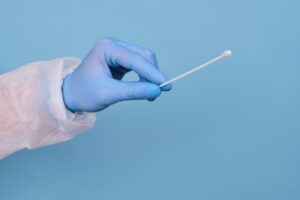The Role of DNA Testing in Determining Paternity in Jackson, MS

When it comes to establishing paternity—whether for legal purposes, health information, or simple personal knowledge—DNA testing is the gold standard. DNA testing has revolutionized how paternity is determined, offering accuracy and reliability unmatched by previous methods. As one of the most trusted providers of paternity testing in Jackson, MS, and surrounding areas, Mobile Drug Screen offers affordable and accurate testing options, whatever your needs may be. Keep reading to learn more about the role that DNA testing can play in determining your or your child’s paternity.
Understanding DNA Testing for Paternity
DNA paternity testing relies on the comparison of genetic markers between a child and a potential father. These markers, known as alleles, are specific sequences of DNA that vary among individuals. By analyzing these genetic variations, laboratories can determine the likelihood of paternity with a high degree of accuracy.
The process of DNA paternity testing typically involves collecting samples from the child, the alleged father, and sometimes the mother. Buccal swabs, which are painless and non-invasive, are commonly used to obtain DNA samples. These swabs collect cells from the inner cheek, which contain DNA that can be analyzed in the laboratory.
In the laboratory, technicians extract DNA from the collected samples and analyze specific regions of the DNA known to vary among individuals. This analysis often focuses on short tandem repeat (STR) sequences, which are repeated segments of DNA with varying lengths. The number of repeats at each STR locus is unique to an individual, making it highly informative for paternity testing.
By comparing the child’s DNA profile with that of the alleged father, laboratories calculate a paternity index—a statistical measure of the likelihood of paternity based on the observed genetic data. This index, along with other statistical parameters, is used to determine the probability of paternity, typically expressed as a percentage. Here at Mobile Drug Screen, our results offer a high degree of certainty and accuracy, and most of our tests are returned with a probability of paternity of 99%.
Legal Implications of Paternity Testing
One of the primary reasons for conducting DNA paternity testing is for legal purposes. In cases of child custody, support, or inheritance, establishing paternity through DNA testing is often a crucial step. Legal paternity tests, recognized by courts, provide irrefutable evidence of biological relationships.
Legal paternity tests follow strict chain-of-custody procedures to ensure the integrity and admissibility of the results in court. This includes verifying the identity of individuals providing samples, maintaining a documented trail of sample handling, and utilizing accredited laboratories for testing.
In legal paternity testing, the results are accompanied by a certified letter or report signed by a qualified professional. This letter verifies the DNA results and provides assurance of the testing process’s reliability, addressing any potential challenges to the test’s validity in legal proceedings. If you need a paternity test for legal purposes, be sure to let our lab technicians know when ordering your tests, so we can ensure we provide you with the proper documentation.
Health Considerations and Paternity Testing
Beyond legal matters, DNA testing for paternity holds significance in understanding inherited health conditions. Knowing a child’s biological father can aid in identifying genetic predispositions, guiding healthcare decisions, and providing a comprehensive medical history.
For example, certain genetic conditions or diseases may have a hereditary component that can be passed from parent to child. By identifying the biological father through DNA testing, healthcare providers can assess the child’s risk factors and recommend appropriate preventive measures or treatments.
Additionally, knowledge of paternity can facilitate communication between family members regarding potential health concerns, fostering a proactive approach to managing genetic conditions within the family.
Establishing Tribal Membership
For individuals seeking to establish tribal membership based on ancestry, DNA testing can play a pivotal role. Many Native American tribes utilize DNA testing to verify familial connections, ensuring the preservation of cultural heritage and access to tribal benefits.
DNA testing for tribal membership typically involves comparing an individual’s DNA profile with known genetic markers associated with tribal ancestry. This process helps tribes validate claims of ancestry and maintain accurate records of tribal membership.
Mobile Drug Screen: Your Partner in Paternity Testing
If you’re seeking reliable and affordable paternity testing services, Mobile Drug Screen offers comprehensive solutions. Our standard paternity tests provide accurate results, while our legal paternity tests include a certified letter verifying the DNA results, essential for court use. Additionally, Mobile Drug Screen offers prenatal DNA testing, allowing parents to establish paternity before the child’s birth. This advanced service enables early planning and preparation, fostering familial bonds from the earliest stages.
DNA testing plays a pivotal role in determining paternity, offering clarity and certainty in familial relationships. Whether for legal purposes, health considerations, or cultural affiliations, the accuracy of our DNA testing is unparalleled. Contact Mobile Drug Screen today for reliable and affordable paternity testing in Jackson, MS.

